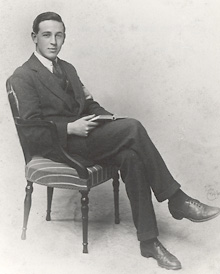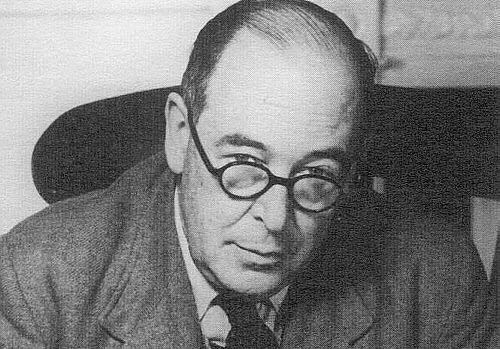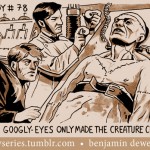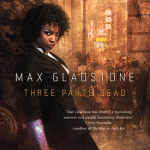Patheos invited religious bloggers to share stories about people we’re thankful for who’ve supported us in our faith. Technically, they asked us to do this for Thanksgiving, but as I was late to the faith, it’s thematically appropriate that I be late to the prompt as well.
I turned out to be embarrassingly easy to snare.
When I was coming out of Commons (the big dining hall on campus), Yale Students for Christ were tabling outside, and they’d put up a sign reading FREE BOOKS. I was over by the table rifling though titles, before I’d even noticed which group was sponsoring the giveaway. Most of the books I picked up looked to insipid to hang on to (a person used to do some bad things, but then they (a) noticed bad things were bad and (b) had some warm feelings, so now Christianity!), but I paused over Mere Christianity.
As scifi and fantasy-mad as I am, I don’t love Lewis’s fiction. I had three unpleasant epiphanies about Narnia on successive rereadings:
- Hey, these are about Christianity!
- Goodness the treatment of non-whites is terrible!
- There is almost no plot in Prince Caspian! (Seriously, go back and check).
But I’d heard enough people cite him approvingly, and I couldn’t really walk away from FREE BOOKS empty-handed, so I scooped it up and tossed it in my bag. This was the year of swapping apologetics with my then-boyfriend, so it wasn’t too long before I took Mere Christianity out to read. The book is adapted from a series of radio broadcasts Lewis did on theology, and the first few sections were laying out an explanation of objective morality, and dealing with a few common objections. This was pretty well timed.
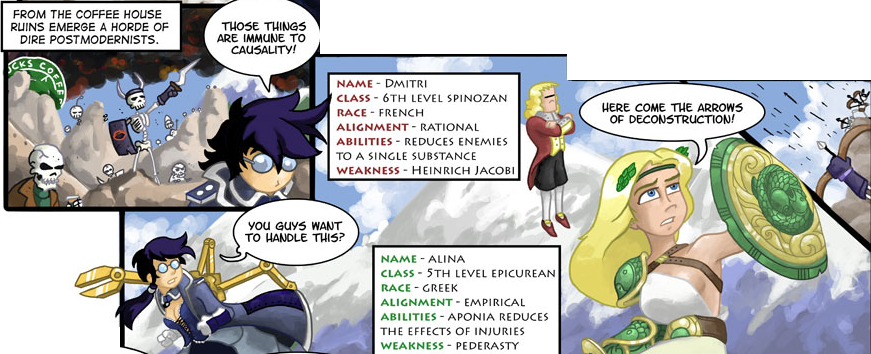
I was spending at least as much time arguing with my debate friends about objective morality as with my then-boyfriend about Catholicism. (And everyone had a tendency to gang up on me). When I read Lewis’s discussion of the natural law written on the heart of man, I was reading my own thoughts, expressed more simply and comprehensibly than I had managed.
The best moments in reading are when you come across something — a thought, a feeling, a way of looking at things — that you’d thought special, particular to you. And here it is, set down by someone else, a person you’ve never met, maybe even someone long dead. And it’s as if a hand has come out and taken yours. [From The History Boys]
Reading Lewis felt like communion, even if I had a tendency to translate his writing into math analogies on the fly. Around this period, I was reading and enjoying Chesterton, too, but, although I found his ideas provocative and surprising, they never triggered the same kind of startle that Lewis kept provoking (and Chesterton describes well in Orthodoxy):
I have often had a fancy for writing a romance about an English yachtsman who slightly miscalculated his course and discovered England under the impression that it was a new island in the South Seas… There will probably be a general impression that the man who landed (armed to the teeth and talking by signs) to plant the British flag on that barbaric temple which turned out to be the Pavilion at Brighton, felt rather a fool. I am not here concerned to deny that he looked a fool. But if you imagine that he felt a fool, or at any rate that the sense of folly was his sole or his dominant emotion, then you have not studied with sufficient delicacy the rich romantic nature of the hero of this tale. His mistake was really a most enviable mistake; and he knew it, if he was the man I take him for. What could be more delightful than to have in the same few minutes all the fascinating terrors of going abroad combined with all the humane security of coming home again? What could be better than to have all the fun of discovering South Africa without the disgusting necessity of landing there? What could be more glorious than to brace one’s self up to discover New South Wales and then realize, with a gush of happy tears, that it was really old South Wales.
Long before I felt in any danger of conversion, I was using Lewis’s apologetics to explicate my own beliefs on this blog. Mere Christianity for why I turned from deontology to virtue ethics, The Great Divorce indicted my pride, and The Weight of Glory curbed some of my ascetic tendencies. By the time I saw Freud’s Last Session (a two-person play that imagines a dialogue between Freud and Lewis), I was frustrated with Freud’s tactics in the argument, and longed for a turn in the ring myself.
Perhaps we didn’t share quite enough for Aumann’s Agreement Theorem to hold, but I couldn’t shake the feeling that one good, undergraduate-style, pizza-and-fighting-til-dawn conversation with Lewis would either convert me or leave me feeling like I’d done my due diligence and could walk away from this hypothesis. Worrying about Lewis and other similar to me converts like Alisdair MacIntyre was the reason I came up with my time-travelling convert thought experiment, and tried to figure out what I was waiting to hear to settle the question.
In the end, C.S. Lewis was what made Christianity a non-euclidean theology for me – conceivably true, but not necessarily (or even likely to be) correct. Feser helped fill in the gaps, and, although I never got my argument with Lewis, I also ended up Surprised by Joy.
P.S. I had a bit of ecumenical envy when I realized that C.S. Lewis’s feast day in the Episcopal church (Nov 22) fell on Thanksgiving exactly this year.

